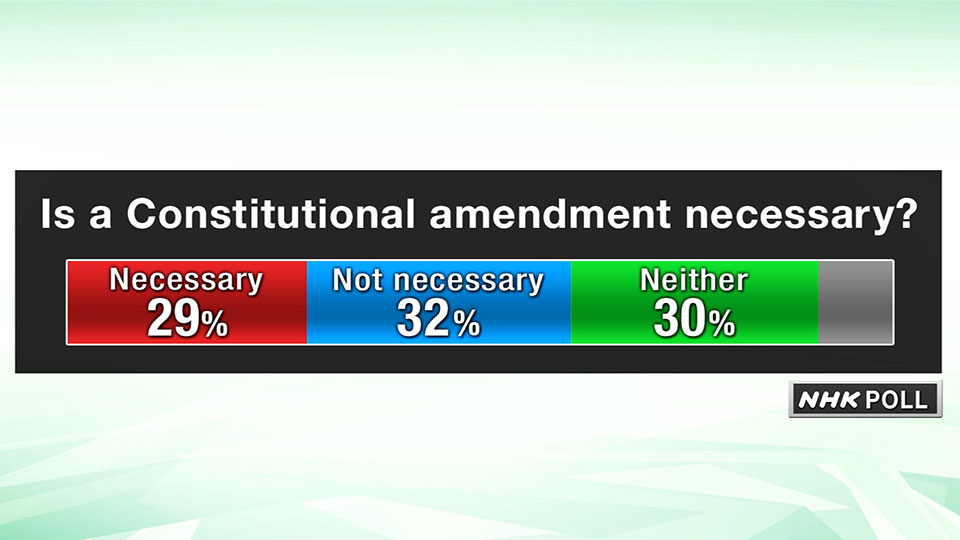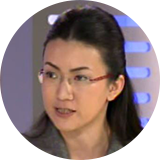What is the issue?
For Shinzo Abe, amending Japan's basic law is becoming increasingly important. There are growing tensions in the Asia-Pacific region as countries deal with China's growing assertiveness and an unpredictable North Korea. But as it stands, the Constitution does not clearly state the existence of Japan's Self-Defense Forces. Abe's ruling Liberal Democratic Party wants to make several amendments to the Constitution, but the one involving the SDF has been the most controversial.

Some people argue that the very existence of the Self-Defense Forces has always been unconstitutional. That's because Article 9 renounces war and bars Japan from maintaining land, sea or air forces. Abe says adding a reference to the SDF would end the debate once and for all.
This month, NHK asked voters if they think an amendment is necessary.
29 percent of respondents said it is.
32 percent said it's not, and 30 percent said amending the Constitution is neither necessary nor unnecessary.

Parties' allegations
After the last Upper House election, Abe and pro-amendment forces had a two-thirds majority in both chambers for the first time. That's the level of support needed to start an amendment process and eventually bring the issue to a national referendum.
But just having the numbers wasn't enough. An all-party commission could not agree to debate the LDP's proposal. Throughout this campaign, Abe has criticized the opposition, saying they won't even come to the table.
He says this election is about choosing politicians who are "responsible" enough to debate the issues.
Even the LDP's coalition partner Komeito has been cautious about changing Article 9. It says many people don't think the SDF is violating the Constitution.
Nippon Ishin has been willing to debate the issue.
The four opposition parties have differing views on whether the Constitution should be changed, but they agree on one thing: the Constitutional Democratic Party, Democratic Party for the People, Japanese Communist Party and Social Democratic Party all oppose Abe's plan to refer to the SDF in Japan's foundational law.
Amending the Constitution has been a key political goal for Abe for more than a decade. He was hoping to put a revised Constitution into force next year. But with much of the opposition uniting against change, the path to achieving it remains unclear.

